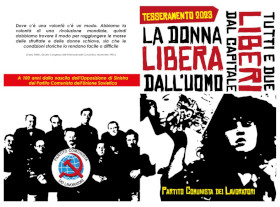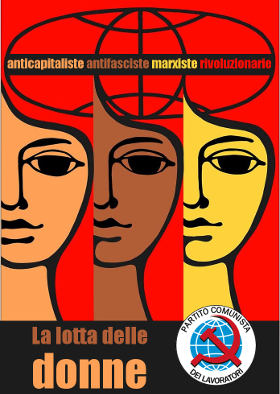Internazionale
Against Bolsonaro's fascist squads
No trust in Lula's government. For an independent action of the Brazilian working class
10 Gennaio 2023
Exactly two years after the Trumpian assault on the US Capitol Hill, a fascist mass attacked and invaded the Brazilian presidential palaces, the Parliament, and the Supreme Court in Brasilia.
There are differences - of context and dynamics - between the two events.
Differences of context, first of all. USA is the greatest world's imperialist power, while Brazil is the largest state among Latin America's dependent countries. American bourgeois democracy has centuries of history behind it. Brazil went through bloody military dictatorships in the 1960s, and completed its transition to bourgeois democracy only in recent times, in the late 1980s.
The differences also concern the concrete dynamics of the events. In the US, the assault took place with President Trump still formally (however briefly) in office, while in Brazil Bolsonaro lost the presidential runoff on October 30, and the new President Lula is already installed and at work.
And yet the similarity is deep. In both cases a reactionary social bloc, product of an extreme political polarisation, expressed itself through direct action, bypassing all institutional channels, in opposition to the governments of their countries.
Let's be clear. Contrary to the urban legends which say that everything always happens according to pre-determined scenarios "from above", in neither case the action was directly led by the reactionary Big Leader. Trump certainly stirred up those who attacked Capitol Hill with his demagogy, but he did not order the raid on the Congress building, which rather has politically weakened him. Likewise, the ultra-reactionary Bolsonaro is certainly the flag bearer and guru of those who attacked the presidential palace in Brasilia, but he himself was not the commander-in-chief in practice of the operation. It is no coincidence that he decided to distance himself from the events flying to Florida.
But these simple observations alone would be just superficial and consolatory. Bolsonaro lost the October elections by a mere two million votes. His social bloc remained largely intact. It represents half of Brazilian voters, an extremely motley national-popular bloc, urban as well as rural. A mixture of nationalism, religious fundamentalism, xenophobia, youth and football gangs, agrarian latifundism and big business, small and big crime and at the same time popular demand for police and 'security'. It is no coincidence that all this has found expression in the person of Bolsonaro, a fanatical no vax populist who claims the worst reactionary militarism in recent Brazilian history. And it is not by chance that Bolsonaro has sought support in the military forces.
The roots of what happened is here. A large part of the active base of Bolsonarism is not resigned to the election result of the last election. They reject the legitimacy of the result by crying 'fraud', exactly as US Trumpsters did in 2020.
For two months, the most radical circles of Bolsonarism have been promoting street protests, roadblocks, sit-ins, everything that would oppose the falling of their leader, and thus oppose the institutional handover between Bolsonaro and Lula. They also hoped that Bolsonaro himself would appeal to the Brazilian Armed Forces to prevent by force Lula's establishment. But Bolsonaro did not indulge. He didn't recognise Lula's victory, he didn't show up at his inauguration, but he didn't call for the overthrow of Lula. The invasion of the halles of power by Bolsonaro's squads is certainly the result of Bolsonaro's reactionary momentum, it was pushed by his politics, it was made possible by his organisational and financial machine (for exemple the buses at disposal of the demonstrators), it met the complacency and complicity of the police and the army. Nevertheless, it found no direction and no result.
But the warning of what happened goes far beyond its outcome. It shows that the level of political confrontation gets past the bounds of bourgeois democracy. It is an issue addressed to the new Lula government on the one hand, and to the Brazilian workers movement on the other hand.
Lula was quick to take advantage of the narrow escape. He has on his side the unanimous support of the world's imperialist diplomacies (from Biden to Putin). He decided to fire the regional governor of Brasilia, to appoint new top police chiefs, and finally decreed a ban on demonstrations throughout Brazil until January 31. The meaning of these measures is to rely on the Brazilian state and military apparatus, calling on it to 'defend democracy'. And above all, this means to halt every independent initiative of the workers movement against reactionaries and the right-wing.
Lula's main concern is that the failure of the coup attempt will trigger a mass reaction of the working class, in a dynamic of open confrontation with reactionaries.
It is easy to predict that the ban on demonstrations and the state of emergency will be applied also against the workers movement, starting with its vanguard. Lula demands 'order', which is the same watchword of the Brazilian bourgeois press, of the stock exchange, of the employers' organisations. None of them is a direct political affiliated of Bolsonaro. All of them now fear like the plague the risk of an ungovernable social and political conflict. The Lula government takes up the demand for order. The very composition of the government, which also involves right-wing circles and personalities, shows its moderate political course. The current one is the most right-wing government among those led by the PT in the last twenty years. Now, the aborted subversive action of January 8 will consolidates even more this moderate course. Lula relies on the events to strengthen his own legitimacy in the eyes of the bourgeoisie as the only boundary left against chaos. His credibility at the eyes of the bourgeoisie will derive from stopping any possible working class response to the coup.
The need of the working class is exactly the opposite. That is, to mobilise its forces unitedly against the reactionary Bolsonarism, in complete autonomy from the Lula government and from the state apparatus. It is time for the general strike, for mass demonstrations, for organisation of self-defence. It is time for the active opposition of the working class to this reactionary wave.
Beyond their immediate outcome, the events of January 8 demonstrate the potential and the extremism of the reactionary social bloc. Only an independent movement of the enormous Brazilian working class can break up this social bloc and open up a new scenario from below. The most solid way to block the road to the reactionaries – today and tomorrow – is to put up an anti-capitalist answer.










